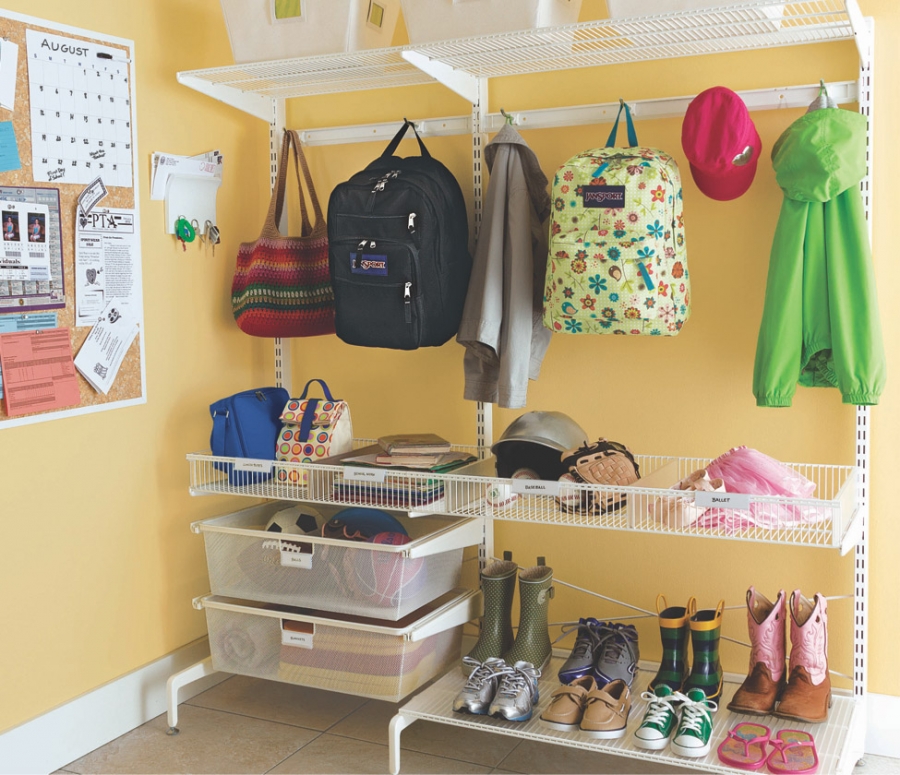Moving Tips & Renter's Rights
In today’s mobile society, relocating is more common than ever. Being aware of renters’ rights and following these moving tips can help make the moving process go quickly and seamlessly.
 Image (CC BY 2.0) Beth Kanter
Image (CC BY 2.0) Beth Kanter
Renters’ rights protect renters from landlords’ unlawful activities and/or fees. Although renters’ rights vary by state, a set of basic rights generally applies to all renters in the United States.
The first basic right of a renter is to have a written lease agreement. All parties who will rent or lease, defined as tenants or renters, should thoroughly review the terms of the lease before signing the agreement. If the lessor, or landlord, does not present the potential renter with a lease, which is sometimes the case when renting from a close associate or family member, the lessee(s), or renter, should request one. A solid lease agreement will protect all parties and help to quickly resolve issues that may arise in the future. Along with basic property information, such as the address of the leased property and which utilities the renter will be responsible for, the lease should specify the length of the tenancy, which may vary from year-to-year, which is the most common term, to week-to-week.
According to the Ohio State Bar Association (OSBA), tenants also have the following rights:
Health and Safety: Tenants have the right to complain to a governmental agency about landlords’ violations of housing laws or regulations that affect health and safety.
Complaints: Tenants have the right to complain to landlords for failing to perform any legal duties. If the complaint results in retaliation from the landlord in the form of increased rent, decreased services, or eviction, the landlord has violated the law. There are legal remedies to stop or punish retaliation, including lease termination and the right to recover damages and attorneys’ fees.
Tenant Bargaining: Tenants have the right to join with other tenants to bargain with the landlord about lease terms.
Owner Information: Tenants have the right to know the name and address of the owner of the residential premises and the owner’s agent, if applicable. This information must appear in the written lease agreement or be given to the renter in writing at the beginning of tenancy if the lease is oral.
Privacy: Tenants have a right of privacy, which the landlord must respect. The landlord may enter rental properties after reasonable notice (at least 24 hours), with the exception of emergency situations, in which notice does not have to be given.
Ownership of Furnishing and Possessions: If a tenant breaches the lease, the landlord may not seize the renter’s furnishings or possessions to recover rent payments.
Escrow
If a landlord fails to make repairs requested by a renter after 30 days, the renter has the right to escrow rent payments, which means to submit payment to the clerk of the municipal or county court (depending on location) in lieu of paying the landlord, according to the OSBA. Renters must file with the appropriate court and follow procedures as outlined by the court to ensure that they will not be evicted for nonpayment during the escrow process. Renters are not eligible to escrow payments if they are not current on rental payments, or if the renters received written notice that the landlord owns three or fewer residential units prior to moving into the property, according to the OSBA.
Security Deposit
At the end of the tenancy, if the renter does not choose to renew the lease and has given proper notice to the landlord that the lease will not be renewed, the renter is entitled to the return of his or her security deposit, if one was submitted prior to tenancy. For example, if the renter has a month-to-month lease, the renter should give the landlord at least 30 days’ notice of his or her intent to vacate the property, unless otherwise stated in the lease agreement.
The renter must return all keys and devices, such as garage door openers, to the landlord and leave the property in the condition it was in at the move-in-date, with the exception of normal wear and tear. The landlord has the right to apply the security deposit to unpaid rent, utilities, late fees, or damages resulting from the renter’s actions, according to the OSBA, and then must send the renter the remaining balance of the security deposit within 30 days. If the renter does not receive the security deposit within 30 days, he or she may file a claim with the court and the landlord may be ordered to pay the renter twice the amount owed, plus attorneys’ fees, according to the OSBA.
Moving Tips
Once renters’ rights are understood and the lease agreement is signed, renters should feel comfortable moving into the rental property. The following moving tips, provided by Realtor Andre Jamal Walker of Coldwell Banker Commercial NRT and CEO of Atlanta-based development firm Flossy Commercial, will help to simplify the moving process:
-
Take the opportunity to de-clutter. Donate items you no longer use, such as books and gently used toys or clothing, to organizations that will give them to the needy rather than moving them to your new home to take up space.
-
Use old newspapers or magazines to protect fragile items instead of bubble wrap, which will reduce the negative environmental impact of your move and save you a trip to the supply store.
-
Pack electronics, such as TVs and laptops, in their original packaging if you still have it.
-
Use “dish barrel” boxes to safeguard dishes from breakage.
-
Clearly label all boxes and containers with a description of the items in the box, as well as which room the items will go in the new property.
-
Use vacuum-sealable plastic bags to pack clothing and blankets to save space.
-
Use cylinder tubes to protect and transport posters or other unframed wall art.
Working with Professional Movers
Those who opt to use a professional moving company should research the company prior to getting an estimate or signing any agreement. According to Your Rights and Responsibilities When You Move, a moving guide provided by the U.S. Department of Transportation's Federal Motor Carrier Safety Administration (FMCSA), all legitimate movers and brokers are registered with the FMCSA. A broker arranges for the transportation of goods but does not provide line-haul transportation, while movers actually transport the shipment, according to the FMCSA. Whether working with a broker, moving company, or both, renters should familiarize themselves with all parties involved in packing and transporting their goods.
Reputable movers and brokers should provide clients with the following, according to the FMCSA:
-
A written estimate,
-
Information about the mover’s arbitration program,
-
Written notice about access to the mover’s tariff, and
-
The process for handling claims.
The FMCSA warns against using the following types of brokers and movers:
-
Brokers and movers that are not registered with the FMCSA,
-
Those who have refused to perform a physical survey of goods, and
-
Companies that require cash-only transactions.

J. Mariah Brown
J. Mariah Brown is a technical research writer and the owner of Writings by Design, a comprehensive business writing service company that specializes in business development, promotion, and client outreach. She has worked in a variety of technical and non-technical industries including, but not limited to, Government, Non-Profit, Engineering, Translation and Interpretation, Christian and Women’s Publications, and Fashion and Beauty. She is a graduate of the prestigious E.W. Scripps School of Journalism at Ohio University and is currently pursuing a master's degree from Gonzaga University in Communication and Organizational Leadership.




